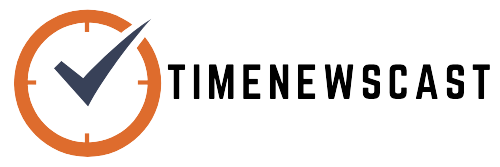In the intricate world of healthcare administration, where delivering quality patient care remains paramount, providers face an ongoing challenge: managing the complex landscape of medical billing. Medical billing encompasses a multitude of tasks, from accurately coding procedures and diagnoses to submitting claims to insurance companies and ultimately, ensuring timely reimbursement. However, this process is often fraught with pitfalls, inefficiencies, and administrative burdens that can strain healthcare organizations’ resources and focus.
Enter the solution: Medical Billing Outsourcing. In this comprehensive guide, we delve into the realm of medical billing outsourcing—an innovative approach that is transforming the way healthcare providers manage their financial operations. This guide is designed to shed light on the practice of outsourcing medical billing services, explore its benefits, provide guidance on selecting the right outsourcing partner, navigate the process, address potential challenges, and glimpse into the future trends shaping this evolving landscape.
The healthcare industry is dynamic and ever-evolving, demanding providers to adapt and optimize their operational strategies continually. The pursuit of optimal patient care is invariably intertwined with efficient revenue cycle management, which encompasses the entire journey of patient care, from scheduling appointments to receiving payments. Medical billing outsourcing emerges as a strategic choice, enabling healthcare providers to channel their focus where it matters most—patient well-being—while entrusting specialized professionals with the intricacies of billing and revenue collection.
This guide aims to equip healthcare professionals, administrators, and decision-makers with insights into the world of medical billing outsourcing. By exploring the advantages, challenges, and case studies, we provide a holistic understanding of how outsourcing can be a transformative step toward enhancing revenue cycles, streamlining operations, and ultimately contributing to improved patient care.
Join us on this journey as we unravel the nuances of medical billing outsourcing, offering you a compass to navigate the complex landscape of healthcare administration with greater efficiency, accuracy, and patient-centeredness.
Understanding Medical Billing Outsourcing
Medical billing outsourcing, in its essence, refers to the strategic practice of entrusting the critical task of medical billing and revenue cycle management to external specialized service providers. In this section, we delve into the foundational aspects of medical billing outsourcing, exploring its definition, historical context, and the pivotal role it plays in the modern healthcare ecosystem.
Definition and Concept of Medical Billing Outsourcing: Medical billing outsourcing involves partnering with third-party entities, often known as medical billing companies or revenue cycle management providers, to handle the intricate and multifaceted process of medical billing. This includes tasks such as coding procedures and diagnoses, submitting claims to insurance companies, tracking payments, and ensuring compliance with ever-evolving healthcare regulations.
The concept extends beyond merely delegating responsibilities; it embodies a strategic collaboration that allows healthcare providers to leverage the expertise and resources of dedicated billing professionals. By outsourcing, healthcare organizations can free up their internal resources to focus on core competencies—namely, delivering exceptional patient care.
Evolution and Growth of Outsourcing in the Healthcare Sector: The roots of outsourcing in the healthcare sector trace back to the late 20th century when healthcare providers began recognizing the need to streamline their administrative processes. As technology advanced and the complexities of medical billing increased, the practice of outsourcing gained traction.
Over the years, medical billing outsourcing has evolved from a mere cost-saving measure to a strategic partnership that contributes significantly to revenue optimization and operational efficiency. With the rise of electronic health records (EHR) systems, digital communication, and telehealth services, outsourcing has adapted to incorporate modern tools and communication channels, further enhancing its impact on healthcare administration.
Advantages of Outsourcing Medical Billing Services: The decision to outsource medical billing is underpinned by a myriad of benefits that resonate with healthcare providers across various scales. Some key advantages include:
- Cost-effectiveness: Outsourcing eliminates the need for internal investments in expensive billing software, technology infrastructure, and staff training. This translates to substantial cost savings.
- Improved Revenue Cycle Management: Specialized billing professionals are well-versed in navigating the intricate maze of billing codes, claim submission processes, and insurance reimbursement. This expertise leads to higher accuracy and faster revenue collection.
- Expertise and Compliance: Outsourcing partners are attuned to ever-changing healthcare regulations and coding standards. This ensures adherence to compliance requirements, minimizing the risk of costly billing errors and audits.
- Focus on Patient Care: By offloading the administrative burden of medical billing, healthcare providers can channel their energies toward patient-centric activities, enhancing the overall quality of care.
- Enhanced Operational Efficiency: By outsourcing medical billing, healthcare providers can streamline their operations and achieve greater efficiency. Specialized billing companies employ best practices, advanced technologies, and streamlined workflows to optimize the entire billing process. This leads to reduced billing cycle times, minimized claim rejections, and improved overall operational performance.
- Scalability and Flexibility: Outsourcing medical billing services provides healthcare providers with the flexibility to scale their operations as needed. Whether expanding or downsizing, outsourcing partners can quickly adjust their services to match the provider’s changing needs. This scalability ensures that billing operations remain efficient and cost-effective, regardless of fluctuations in patient volume or organizational growth.
Selecting the Right Medical Billing Outsourcing Partner
Choosing the right medical billing outsourcing partner is a pivotal decision that can greatly influence the success of the outsourcing endeavor. In this section, we delve into the key factors that healthcare providers should consider when evaluating potential outsourcing partners. A well-informed selection process ensures a seamless transition, optimized revenue cycles, and a productive partnership that aligns with the provider’s goals.
Factors to Consider: Selecting an outsourcing partner requires a comprehensive evaluation of several critical factors. These include the partner’s reputation, experience, technological capabilities, customization options, scalability, data security measures, and commitment to compliance. By thoroughly assessing these factors, healthcare providers can make an informed decision that aligns with their unique needs and objectives.
Reputation and Experience: A reputable outsourcing partner should have a track record of delivering exceptional results in medical billing and revenue cycle management. Providers should seek references, read client testimonials, and review case studies to gauge the partner’s experience and reputation within the industry.
Technology and Infrastructure: Modern medical billing relies heavily on advanced technologies and software. An ideal outsourcing partner should have state-of-the-art billing software, robust IT infrastructure, and a commitment to staying up-to-date with the latest technological advancements in the field. This ensures efficiency, accuracy, and seamless integration with the provider’s existing systems.
Customization and Scalability: Every healthcare organization is unique, and their outsourcing needs may vary. A suitable partner should offer customizable solutions that can be tailored to the provider’s specific requirements. Additionally, the partner should have the ability to scale their services to accommodate fluctuations in patient volume and organizational growth.
Data Security and Compliance: Data security is paramount, especially in the healthcare industry where patient information is sensitive and subject to strict privacy regulations. The outsourcing partner must demonstrate robust data security protocols, compliance with healthcare regulations (such as HIPAA in the U.S.), and a commitment to safeguarding patient data throughout the billing process.
Collaboration and Communication: Effective communication and collaboration are crucial for a successful outsourcing partnership. Providers should assess the partner’s communication channels, responsiveness, and willingness to maintain open lines of dialogue. A strong partnership hinges on transparent communication that ensures all parties are aligned in their goals and expectations.
Transition Process and Training: A smooth transition to outsourcing is essential to minimize disruptions to the provider’s operations. The partner should have a well-defined transition process that includes thorough training for both their team and the provider’s staff. A comprehensive onboarding process helps ensure that the outsourcing partnership begins on the right foot.
Cost and ROI Analysis: While cost savings are a primary motivator for outsourcing, providers should conduct a thorough analysis of the costs associated with the partnership. This includes both direct costs and potential hidden costs. Additionally, providers should consider the potential return on investment (ROI) in terms of improved revenue cycle management and enhanced operational efficiency.
The Outsourcing Process
Transitioning to medical billing outsourcing involves a series of well-defined steps that ensure a smooth and effective integration of external billing services. In this section, we delve into the intricacies of the outsourcing process, from the initial onboarding to the establishment of efficient workflows and ongoing communication.
Onboarding and Transition: The outsourcing journey begins with a comprehensive onboarding process. During this phase, the outsourcing partner collaborates closely with the healthcare provider to gather essential information about the provider’s operations, systems, and existing billing processes. This deep understanding lays the foundation for a tailored approach that aligns with the provider’s unique needs.
The onboarding process includes transferring historical data, setting up access to billing systems, and defining roles and responsibilities for both the outsourcing partner and the provider’s team. A detailed transition plan is developed to ensure a seamless shift from in-house billing to outsourcing.
Training and Communication: Effective communication and training are paramount for a successful outsourcing partnership. The outsourcing partner provides training sessions for their team to ensure they are well-versed in the provider’s specific billing requirements, coding standards, and expectations. Simultaneously, the provider’s team may receive training on collaborating with the outsourced professionals and using any new systems or tools.
Open lines of communication are maintained throughout the partnership, with regular check-ins, progress updates, and collaborative problem-solving. This transparent communication ensures that both parties remain aligned in their goals and that any challenges are addressed promptly.
Workflow and Reporting: Once the onboarding is complete, the outsourcing partner establishes a streamlined workflow that encompasses the entire medical billing process. This includes coding procedures and diagnoses accurately, submitting claims to insurance companies, tracking payments, and addressing claim denials or rejections.
Regular reporting mechanisms are put in place to track key performance indicators (KPIs) and measure the effectiveness of the outsourcing partnership. Reports may include metrics such as claim approval rates, average payment turnaround time, and revenue collection trends. These insights empower both the outsourcing partner and the provider to make informed decisions and continuously improve processes.
Quality Control and Continuous Improvement: Maintaining high-quality standards is a continuous effort. Outsourcing partners implement rigorous quality control measures to ensure accuracy, compliance, and adherence to industry standards. Regular audits and reviews of billing processes help identify areas for improvement and address any issues proactively.
Additionally, the outsourcing partnership is a dynamic collaboration that adapts to changing needs and market trends. Both the provider and the outsourcing partner actively engage in identifying opportunities for efficiency gains, cost savings, and innovative approaches to revenue cycle management.
Potential Challenges and Mitigation
While medical billing outsourcing offers a range of benefits, it’s important to acknowledge that challenges may arise during the course of the partnership. In this section, we explore some potential challenges that healthcare providers could encounter when outsourcing their medical billing processes and discuss strategies to mitigate these challenges effectively.
Communication Barriers: One common challenge in outsourcing is overcoming communication barriers that can arise due to geographical and cultural differences. Miscommunication or language barriers could lead to misunderstandings, delayed responses, and misaligned expectations.
Mitigation Strategy: Implement clear communication protocols from the outset. Establish regular communication channels, set expectations for response times, and encourage open dialogue. Consider utilizing video conferences and collaboration tools to facilitate effective communication regardless of physical distances.
Data Privacy Concerns: Outsourcing involves sharing sensitive patient data with external partners, raising concerns about data privacy and security breaches. Healthcare providers must ensure that their outsourcing partner has robust data security measures in place to safeguard patient information.
Mitigation Strategy: Carefully evaluate the outsourcing partner’s data security protocols and compliance with relevant regulations, such as HIPAA. Require signed confidentiality agreements and conduct regular audits to verify data security practices. Transparency regarding data handling procedures is crucial to maintaining patient trust.
Quality Control: Maintaining consistent quality in outsourced medical billing processes can be challenging. Variations in coding accuracy, claim submissions, and adherence to compliance standards could impact revenue cycles and patient care.
Mitigation Strategy: Implement a rigorous quality control process that includes regular audits, performance evaluations, and feedback loops. Collaborate closely with the outsourcing partner to address any discrepancies promptly. Setting clear expectations for accuracy and quality from the beginning helps ensure a higher level of consistency.
Transition Hiccups: The transition from in-house billing to outsourcing may experience hiccups as the teams adapt to new processes, tools, and communication methods. Delays or disruptions during this phase could impact revenue collection.
Mitigation Strategy: Develop a comprehensive transition plan that outlines each step of the process, expected timelines, and contingency measures. Conduct thorough training for both the outsourcing partner’s team and the provider’s staff to minimize the learning curve. Regularly review the transition plan to identify and address potential bottlenecks.
Loss of Control: Outsourcing inherently involves relinquishing a degree of control over certain processes. Some healthcare providers may feel uncomfortable with this loss of control and fear that it might impact the quality of services.
Mitigation Strategy: Establish a strong partnership built on trust and transparency. Define clear roles and responsibilities for both parties and maintain open lines of communication. Regularly review performance metrics and progress reports to ensure that outsourcing aligns with the provider’s goals and standards.
Future Trends in Medical Billing Outsourcing
As the healthcare landscape continues to evolve, so does the practice of medical billing outsourcing. In this section, we explore the emerging trends that are shaping the future of medical billing outsourcing, enabling healthcare providers to stay ahead of the curve and capitalize on new opportunities.
Technological Advancements: Advancements in technology, including artificial intelligence (AI), machine learning, and automation, are poised to revolutionize medical billing outsourcing. AI-powered tools can streamline coding processes, identify patterns in claim denials, and predict revenue cycles’ performance, ultimately enhancing efficiency and accuracy.
Integration of Telehealth: The rise of telehealth services has created a paradigm shift in healthcare delivery. With patients seeking remote consultations, medical billing outsourcing will increasingly need to accommodate telehealth-specific billing codes and reimbursement processes. Partnerships with specialized telehealth billing experts will become more critical.
Regulatory Changes and Compliance: Healthcare regulations are continuously evolving, affecting billing and revenue cycle management. Future outsourcing partnerships will need to stay nimble and adaptive to rapidly changing compliance requirements. Partners with dedicated regulatory experts will be essential in ensuring ongoing compliance.
Data Analytics and Predictive Insights: The integration of data analytics and predictive insights will enable outsourcing partners to proactively identify revenue leakage points, optimize coding accuracy, and forecast revenue trends. This analytical approach empowers healthcare providers with actionable insights for strategic decision-making.
Enhanced Patient Engagement: The future of healthcare emphasizes patient engagement and experience. Outsourcing partners may play a role in developing patient-friendly billing communication, such as personalized payment plans, online portals for bill payments, and real-time payment status updates.
Global Outsourcing Partnerships: Globalization has opened doors for outsourcing partnerships beyond national borders. Healthcare providers may explore collaborations with offshore partners to benefit from cost advantages, round-the-clock operations, and diverse skill sets.
Environmental Sustainability: As environmental awareness grows, outsourcing partners could integrate eco-friendly practices into their operations. Electronic billing, paperless processes, and reduced resource consumption contribute to a greener approach to medical billing.
Evolving Payment Models: The shift toward value-based care and alternative payment models necessitates dynamic billing approaches. Outsourcing partners will need to adapt to new payment methodologies, such as bundled payments and pay-for-performance models.






